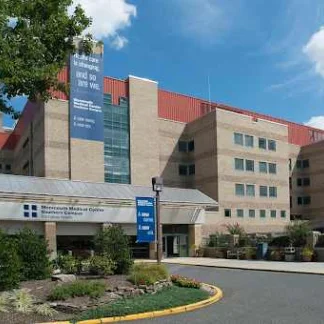Seashore Family Services of New Jersey
Located in Brick, New Jersey, Seashore Family Services of New Jersey offers alco...
Monmouth Medical Center Southern Campus, located in Lakewood, New Jersey, offers alcohol and drug rehab, behavioral healthcare, and mental health treatment. Services are offered on-site and available to all individuals seeking support.
Monmouth Medical Center Southern Campus provides a comprehensive approach to addiction treatment and mental health care. Their programs are offered in an outpatient treatment format.
Outpatient Treatment The outpatient program offers psychiatric evaluations and care, along with individual therapy, group therapy, family therapy, and couples counseling. Clients work through a wide array of life’s challenges with their mental health team to receive support and learn new coping strategies.
Private Insurance Monmouth Medical Center Southern Campus accepts most insurance plans including Anthem, Cigna, ComPsych, HCSC, TRICARE, Humana, and Beacon. Out of network insurance benefits vary, so it’s important for clients to check their benefits and coverage with their insurance carrier.
Contact us for more information: (732) 363-1900

Connect with Monmouth Medical Center Southern Campus by calling their admissions team directly.
(732) 363-1900 Website Get DirectionsThe Joint Commission, formerly known as JCAHO, is a nonprofit organization that accredits rehab organizations and programs. Founded in 1951, the Joint Commision's mission is to improve the quality of patient care and demonstrating the quality of patient care.
Joint Commission Accreditation: Yes
Cognitive Behavioral Therapy (CBT) is a therapy modality that focuses on the relationship between one's thoughts, feelings, and behaviors. It is used to establish and allow for healthy responses to thoughts and feelings (instead of unhealthy responses, like using drugs or alcohol). CBT has been proven effective for recovering addicts of all kinds, and is used to strengthen a patient's own self-awareness and ability to self-regulate. CBT allows individuals to monitor their own emotional state, become more adept at communicating with others, and manage stress without needing to engage in substance abuse.
Research clearly demonstrates that recovery is far more successful and sustainable when loved ones like family members participate in rehab and substance abuse treatment. Genetic factors may be at play when it comes to drug and alcohol addiction, as well as mental health issues. Family dynamics often play a critical role in addiction triggers, and if properly educated, family members can be a strong source of support when it comes to rehabilitation.
Group therapy is any therapeutic work that happens in a group (not one-on-one). There are a number of different group therapy modalities, including support groups, experiential therapy, psycho-education, and more. Group therapy involves treatment as well as processing interaction between group members.
In individual therapy, a patient meets one-on-one with a trained psychologist or counselor. Therapy is a pivotal part of effective substance abuse treatment, as it often covers root causes of addiction, including challenges faced by the patient in their social, family, and work/school life.
Research clearly demonstrates that recovery is far more successful and sustainable when loved ones like family members participate in rehab and substance abuse treatment. Genetic factors may be at play when it comes to drug and alcohol addiction, as well as mental health issues. Family dynamics often play a critical role in addiction triggers, and if properly educated, family members can be a strong source of support when it comes to rehabilitation.
Group therapy is any therapeutic work that happens in a group (not one-on-one). There are a number of different group therapy modalities, including support groups, experiential therapy, psycho-education, and more. Group therapy involves treatment as well as processing interaction between group members.
In individual therapy, a patient meets one-on-one with a trained psychologist or counselor. Therapy is a pivotal part of effective substance abuse treatment, as it often covers root causes of addiction, including challenges faced by the patient in their social, family, and work/school life.
Group therapy is any therapeutic work that happens in a group (not one-on-one). There are a number of different group therapy modalities, including support groups, experiential therapy, psycho-education, and more. Group therapy involves treatment as well as processing interaction between group members.
In individual therapy, a patient meets one-on-one with a trained psychologist or counselor. Therapy is a pivotal part of effective substance abuse treatment, as it often covers root causes of addiction, including challenges faced by the patient in their social, family, and work/school life.
In individual therapy, a patient meets one-on-one with a trained psychologist or counselor. Therapy is a pivotal part of effective substance abuse treatment, as it often covers root causes of addiction, including challenges faced by the patient in their social, family, and work/school life.
Located in Brick, New Jersey, Seashore Family Services of New Jersey offers alco...
Central Jersey Rehabilitation Services is a private rehab located in Toms River,...
Advanced Behavioral Care Services is a private rehab located in Lakewood, NJ. Ad...
Concord Healthcare and Rehabilitation is a private rehab located in Lakewood, Ne...